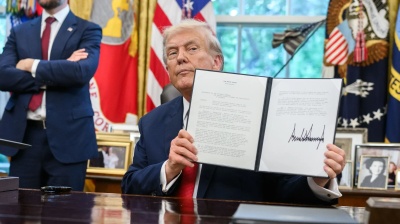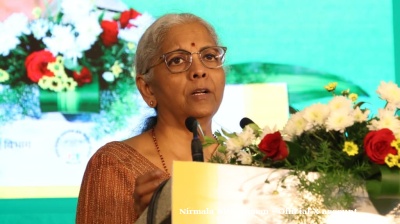The attempt of Poland’s Law and Justice (PiS) party to secure the smooth passage of highly contested legislation putting the country’s supreme court under its control hit an unexpected obstacle late on July 18.
President Andrzej Duda said he would not sign the legislation unless changes are introduced to another important bill, with which PiS is seeking to rein in the National Council of the Judiciary (KRS), a key institution of the Polish judiciary system with broad powers in appointing judges.
Duda demanded that some members of the new-style KRS be elected by parliament with a broader majority. That would mean PiS having to piece together some support from among the opposition parties. He promptly submitted a proposed draft to the parliament.
Constitutional experts, however, said the president’s initiative does little to address the main controversy of PiS’s reform of the judiciary, which amounts to the politicisation of the country’s courts in breach of the constitution.
Apparently not agreed with PiS, Duda’s move created new political momentum, giving extra fuel to opposition representatives who lashed out at the ruling party, essentially saying “even your president does not want these reforms.”
Parliament also worked against a backdrop of pressure caused by street protests in Warsaw and other Polish cities. Thousands of people gathered in front of the presidential palace in the evening, chanting “We want a veto!”
Meanwhile, the parliamentary sitting descended to chaos and was adjourned until July 19 after PiS chairman Jaroslaw Kaczynski – nominally a rank and file MP but de facto the decision maker in the government – called the opposition “scumbags” and accused it of “murdering” his brother.
Kaczynski’s twin brother, President Lech Kaczynski, died in a plane crash in Russia in 2010.
The crash was caused by a series of fatal errors from the crew working under pressure from officials to land in adverse weather but PiS has built a narrative of conspiracy behind the accident.
The opposition referenced the late president’s opinion about the importance of an independent judiciary, provoking the PIS chairman’s fury.
"I know you're afraid of truth, but do not wipe away your treacherous muzzles with my brother's name. You destroyed him, you murdered him, scumbags!" Kaczynski ranted.
Despite the controversy, PiS still appears likely to pass the new law on the supreme court this week, with the bill currently in the second reading. If passed, the bill will end the terms of all current supreme court judges and leave the nominations for the required new line-up in the hands of the justice minister.
There is concern that, upon seizing control of the supreme court, PiS will next try to push through a constitutionally controversial election law and have an obedient supreme court rubber-stamp a vote cementing the party's rule.
The reform of the judiciary will add to the growing pile of problems the EU has with its sixth largest member state.
Over 2015 and 2016, PiS engineered the law on the Polish Constitutional Tribunal (TK) to ensure it does not block new legislation. The EU is now probing whether the new TK regulations violate the EU’s founding principle of the rule of law. The European Commission is also expected to discuss the judicial bills on July 19.
PiS’s plans are also having a galvanising effect on the atomised opposition, with the main parties now calling for a “united front” against PiS, focused on blocking the judicial reforms.
News

Trump authorises CIA covert operations in Venezuela to topple Maduro
The White House has acknowledged granting the Central Intelligence Agency sweeping powers to conduct covert operations aimed at unseating President Nicolás Maduro, the NYT reported.

India’s finance minister to miss upcoming IMF and World Bank meetings
India’s Finance Minister Nirmala Sitharaman will not attend this week’s annual meetings of the International Monetary Fund and World Bank in Washington, as trade negotiations between New Delhi and Washington remain unresolved.

Young Ukrainians asylum seekers fleeing the war for Germany surges
The number of young Ukrainian fleeing the war and seeking asylum in Germany has surged, following Ukraine’s decision to partially lift its travel ban for men aged 18 to 22, according to figures from the German Interior Ministry.

US may double support for Argentina to $40bn conditional on policy reforms
Washington buys Argentine pesos and mulls creating a new private sector-led $20bn debt facility, which would bring total support to $40bn with the existing swap line, Treasury Secretary Bessent said.




